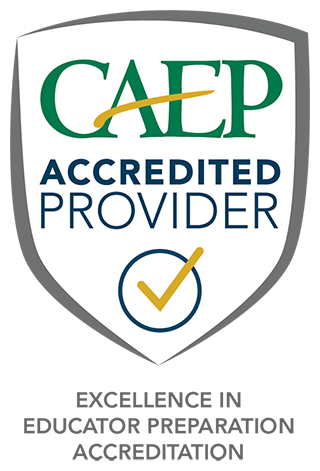Educational Leadership in K-12, EdD
The Doctor of Education in Educational Leadership with a concentration in K-12 is an accelerated three to three-and-half year advanced practitioner program. This program will prepare the candidates as effective administrators and equity practitioners who can articulate a vision for public schools, interact with curious minds, implement cutting-edge research practices and technology to develop a new vision of education for the diverse society. They will emerge as effective instructional leaders with expertise in policy development, teaching innovations, curriculum development and can foresee the future of 21st century educational institutions. They will collaborate with diverse stakeholders for strategic planning, as well as implementing and evaluating processes to foster supportive and inclusive district culture that benefit the academic growth and ensure each student’s success.
This doctoral program aims to prepare culturally responsive, transformational senior-level administrative leaders, policymakers, and researchers who can design solutions across K-12 institutions. As innovative leaders, you will be able to impact the worlds of policy and practice to promote a positive school climate and ensure each student’s success. By joining this program, you will be envisioning the future of 21st century K-12 educational institutions, interacting with curious minds, implementing cutting-edge research practices to develop a new vision of education for a diverse society. You will emerge as a change agent and reflective practitioner who can address diverse educational issues and lead sustainable change at district, state, and national levels. This program is deeply grounded in CAEP and NELP standards. The dissertation process will follow the Carnegie Project on the Education Doctorate (CPED) process.
Course Delivery & Format
Courses are conducted in an accelerated weekend format. Courses span eight weeks, and the classes are normally held in the first, third and sixth weekends of an eight-week session. Normally, a two-week break is provided between the courses so that the students can prepare for the next course. Sessions are held on Friday evenings from 5- 9 p.m., Saturdays from 9 a.m.- 4 p.m. and Sundays from 10 a.m.- 3 p.m. Currently, the classes are being held via virtual synchronous- asynchronous hybrid format.
Required Courses
View of the K-12 Course Curriculum
Distinguishing Features
In collaboration with the State of Delaware, the purpose of Delaware State University’s Doctor of Education (Ed.D.) in Educational Leadership program is to prepare educational leaders for prominent leadership and service positions in school districts and other school leadership positions across K-12 education. Our rigorous advanced program of study has been designed for working professionals to foster continuous refinement of their leadership skills to promote effective organizational and individual performance. Through a sound educational foundation and directed field experience, students will emerge as viable candidates for leadership positions throughout the country. At Delaware State University, students will find a unique balance between rigorous research, serious academic studies, partnership, collegiality, and personal development. Students will be prepared to take data-driven decisions to serve authentically, and lead with integrity, and hone their personal leadership style, create a new career path, and learn to meet the challenges of 21st century.
 The Delaware State University’s Ed. D. Program had received National Accreditation by the Council for the Accreditation of Educator Preparation (CAEP) for seven years. This accreditation is quality assurance that the programs meet standards set by organizations representing the academic community, professionals, and other stakeholders.
The Delaware State University’s Ed. D. Program had received National Accreditation by the Council for the Accreditation of Educator Preparation (CAEP) for seven years. This accreditation is quality assurance that the programs meet standards set by organizations representing the academic community, professionals, and other stakeholders.
- Cohort model with accelerated weekend format
- Program grounded in NELP Standards
- Enriched curriculum with effective course sequencing
- Diverse research capstone options
- Ample opportunities of experiential learning through internship and community partnership
- SPA approved standard based assessments
- Robust graduation rate
Professional Certification Information
Most states require Doctor of Education in K-12 to gain licensure to become a superintendent or assistant superintendent in a school district. Our program does not provide a licensure or a certification as a superintendent or assistant superintendent in a school district or as a Certified Central Office personnel, but helps students meet the eligibility criteria for these positions. For more information about the requirements for superintendent or assistant superintendent certification, please visit the state of Delaware website or your state’s department of education’s website.

